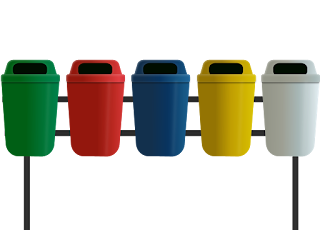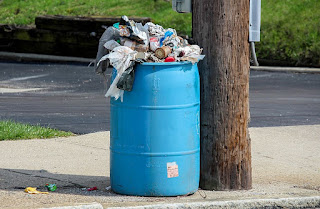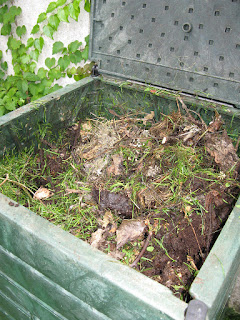Waste management
includes all the activities from collecting, handling, transporting, and
disposing of garbage and sewage. Mainly, it comprises dry & wet waste. Some
of us go for landfill disposal & burning but these methods are not alright
from the point of view of nature.
Let’s find out some eco-friendly & effective ways of waste management below:
Smart shopping
You can buy non-perishable food items in bulk so that it reduces the packaging trash. If a particular vegetable gets wasted frequently, then make sure you buy less quantity of it next time. The more you discover your eating habits, the more you can avoid unnecessary food wastages. You can also make a shopping list to find out quickly the things which you need to buy. Last but not the least, refrigerate fresh fruits & veggies as early as possible to prevent wastage.
Eco-friendly packagings
A garbage bin mostly contains empty packagings
of food products. These packagings are generally non-recyclable. If food
industries will adopt eco-friendly packaging practices then the used packets
will get easily disposed of in the land. Thereafter, it will reduce the burden
of trash removal on our earth.
Shops, malls, grocery stores can use paper bags instead of plastics. Otherwise, they can also charge customers the cost of a plastic bag to reduce demand for plastic bags.
Turning trash to energy
The wet leftovers that you throw can be used to generate electricity at someone’s home. Wet scrap materials like rotten fruits & vegetables, dining leftovers, and even animal scraps can be turned into an efficient electricity source. The food particles are broken down in anaerobic digester and electricity is produced.
This type of produced electricity is a renewable source of energy and therefore it conserves the natural energy sources. Also, it requires lower investment and operational costs than solar or water electricity sources. Biogas can also be produced from the leftover wet matters.
Reusing
You should try to reuse things as much as possible. We use a lot of water in the kitchen every day to cook food or clean dishes. The water left after washing fruits & vegetables can be used to water indoor & outdoor plants. You can collect rainwater in a bucket in rainy seasons. The collected water can be used in many household activities. This will allow for the efficient use of water.
These small steps towards reusing water can
save hundreds of gallons of water every week. The same way, leftover bread,
vegetables, & fruits can also be turned into tasty dishes that will soothe your
hunger.
Recycling
A lot of food leftovers are generated at households each day. You can make delicious bread pudding, french toasts, from leftover bread. Otherwise, these leftovers can also be used to feed stray animals. Apart from this, you can do many innovative things from these scraps. For instance, the citrus peels can be used in your daily skincare routine. Also, you can make aromatic perfumes with fruit peel extracts.
Composting
Every day, a lot of wet garbage is thrown away from households, cafeterias, restaurants, and supermarkets. This wet garbage residue includes fruits & veggies, grocery trash, bakery scraps, non-veg food scraps, etc. These sorts of wet garbage can be composted every time they are produced. Composting is an eco-friendly way of wet scrap removal. It recycles food wastage and produces nutrient-rich manure. This manure can then be used in organic farming, nurseries, gardens, wedding lawns, etc.
Conclusion:
The effective management of solid trash is imperative in today’s world. Every individual should look over to minimize trash creation. The massive reduction in trash generation will automatically minimize the problem of garbage disposal.
All of us should try to minimize the garbage generated. This will reduce the burden on local authorities. We can classify our wet & dry garbage at home. Wet garbage can be composted using a waste composting machine-like Goldust.
These machines organically decompose wet food
matters & yard scraps and generate manure. This machine is fully automatic
and processes all sorts of wet scraps. It does not release harmful gases or
pathogens while processing is being carried out. The whole process completes
the ecological loop and helps in creating zero garbage smart cities.
You can visit LAHS Eco Engineering’s official
website for more information.
























